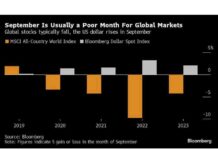German Wages Surge to Decade-High Growth Rate
Pay increases in Germany are on the rise, offering a glimmer of hope for workers as they grapple with falling purchasing power. The Institute of Economic and Social Sciences at the Hans Boeckler Foundation (WSI) predicts a substantial wage growth of 5.6% in 2024, with an inflation-adjusted increase of 3.1%. This surge marks the most significant rise in wages seen in over a decade, providing some relief after years of stagnation.
Professor Dr. Thorsten Schulten, head of the WSI collective bargaining archive, highlighted the significance of these wage increases. He noted that while the current real wage hikes are compensating for the substantial declines experienced in previous years, they have yet to reach the peak value observed in 2020. Despite this, the recent uptick in wages is a step in the right direction, with nearly half of the lost purchasing power from previous years being recuperated.
Schulten emphasized the economic importance of real wage increases in stabilizing overall economic development. Higher wages translate to increased purchasing power for workers, leading to a boost in consumer spending and economic growth. In light of recent inflationary pressures stemming from global supply chain disruptions and geopolitical tensions, bolstering consumer demand through wage growth is crucial for sustaining economic stability.
In the first half of the year, over eight million employees in Germany benefited from new collective wage agreements, reflecting a positive trend in the labor market. These agreements were further influenced by Individual Additional Payments (IAPs), tax-free one-time bonuses that employers can offer to their employees. While these payments provide short-term relief by offsetting inflationary effects and driving real wage increases, they come with long-term implications.
Schulten cautioned that the elimination of inflation compensation premiums in 2025 could dampen the trajectory of collective wages, underscoring the delicate balance between short-term benefits and long-term consequences. The European Central Bank will closely monitor wage growth to inform its interest rate decisions and mitigate potential cost spikes in the future.
Factors Driving Wage Growth
Several key factors contribute to the anticipated surge in German wages. The recovering economy, coupled with labor shortages in various sectors, has empowered workers to negotiate for higher pay. The ongoing effects of the COVID-19 pandemic, such as increased demand for essential services and disruptions in global supply chains, have also played a role in driving up wages.
Moreover, the geopolitical instability resulting from Russia’s war in Ukraine has further exacerbated inflationary pressures, prompting employers to offer competitive wages to retain skilled workers. The combination of these factors has created a favorable environment for wage growth, providing workers with a much-needed financial boost amid challenging economic conditions.
Implications of Wage Growth
The upward trajectory of wages in Germany has far-reaching implications for the economy and society as a whole. Higher wages not only improve the standard of living for workers but also stimulate consumer spending, driving economic growth. Increased purchasing power translates to greater demand for goods and services, benefiting businesses across various industries.
Furthermore, wage growth can help reduce income inequality by narrowing the gap between high and low earners. By providing workers with fair compensation for their labor, companies foster a more equitable distribution of wealth within society. This, in turn, promotes social cohesion and reduces the risk of social unrest stemming from economic disparities.
Additionally, rising wages have the potential to boost productivity by incentivizing workers to perform at their best. When employees feel valued and adequately compensated for their efforts, they are more likely to be motivated and engaged in their work. This, in turn, can lead to higher levels of efficiency and innovation within organizations, contributing to overall economic competitiveness.
Challenges and Opportunities
While the surge in German wages presents opportunities for economic growth and social progress, it also poses challenges that must be addressed. One major concern is the potential impact of rising wages on inflation rates, as increased labor costs can lead to higher prices for goods and services. This, in turn, may erode the purchasing power of consumers, offsetting the benefits of wage growth.
Moreover, companies may face increased pressure to maintain profit margins in the face of rising labor costs, potentially leading to job cuts or reduced investment in workforce development. Balancing the need to provide fair wages to workers with the imperative of maintaining business viability is a delicate balancing act that requires strategic planning and foresight.
Another challenge is ensuring that wage growth is inclusive and equitable, benefiting all segments of the workforce. Women, minorities, and other marginalized groups often face barriers to accessing higher-paying jobs or negotiating for fair wages. Addressing these disparities requires targeted interventions and policies aimed at promoting diversity and inclusion in the labor market.
Despite these challenges, the surge in German wages presents a unique opportunity to address longstanding issues of income inequality and economic stagnation. By harnessing the momentum of wage growth to drive sustainable economic development and social progress, Germany can pave the way for a more prosperous and equitable future for all its citizens.






















